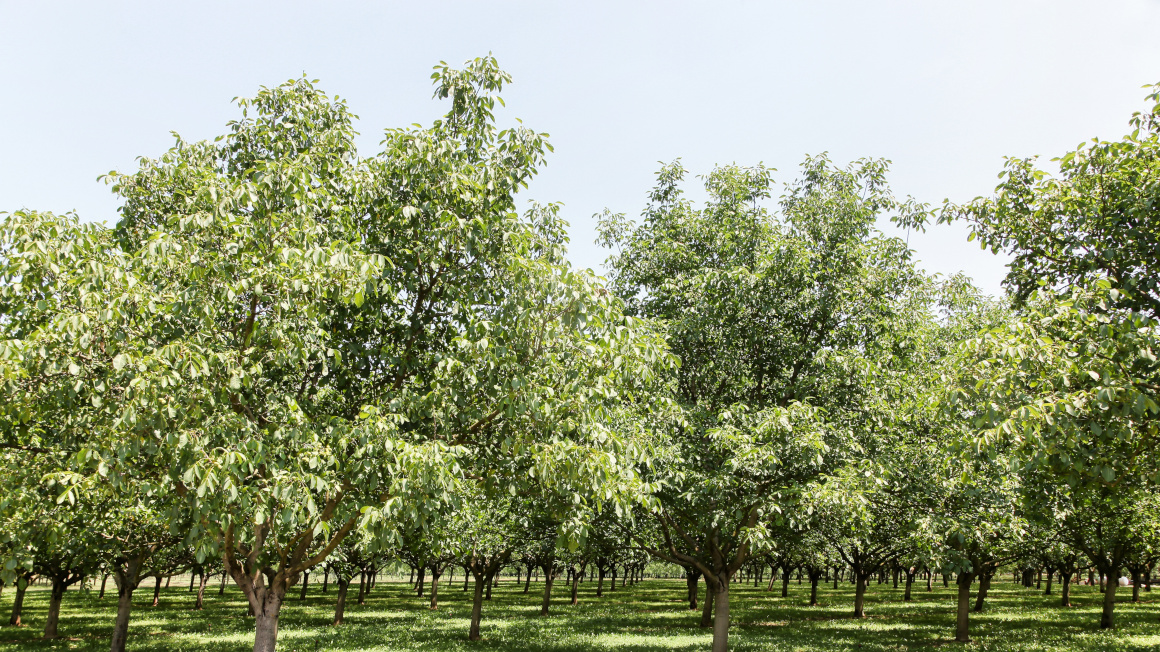Climate-resilient trees for dry soils
The Eberswalde University for Sustainable Development is launching a research project to improve agroforestry systems in arid regions of eastern Germany.

In many regions of Germany, the increasing drought caused by climate change is leading to considerable challenges for agricultural production, including in Brandenburg and Saxony-Anhalt. The Eberswalde University for Sustainable Development (HNEE) is therefore launching a research project to test climate-robust agroforestry systems in cooperation with three farms from the two federal states. The aim is to increase the survival rate of young trees under drought stress through targeted tree selection and optimised cultivation methods. At the official project kick-off in Cobbel, the partners discussed the next steps for successful implementation.
The challenge of spring drought
In agroforestry systems, woody plants are integrated into agricultural land in strips. These systems offer several advantages: they reduce soil erosion, improve the microclimate, promote biodiversity and create additional sources of income in the long term through timber and fruit yields. In eastern Germany in particular, however, farmers are faced with the problem of high failure rates among young woody plants due to increasing spring drought. This is where the project funded by the German Federal Environmental Foundation comes in.
From December 2025, 200 trees are to be planted on each of the three practical farms: Sonnengut Gerster in Dietrichsroda (Burgenlandkreis), Warnke Agrar in Cobbel (Altmark) and Biohof Kepos in Heinrichsfelde (Ostprignitz). The researchers are focussing on the cultivation of walnut, sweet chestnut and mulberry - species that are considered particularly drought-tolerant and produce both timber and marketable fruit.
New prospects for agriculture
‘Industrial agriculture has reached a dead end,’ explains farmer Christian Warnke from Warnke Agrar. "We need to rethink agriculture in terms of the landscape. A diverse mosaic of utilisable woody plants and open spaces can create stable ecosystems."
The project is being scientifically monitored and documented. The results should provide practical recommendations for farmers who want to make their farms climate-resilient and sustainable.
lh


